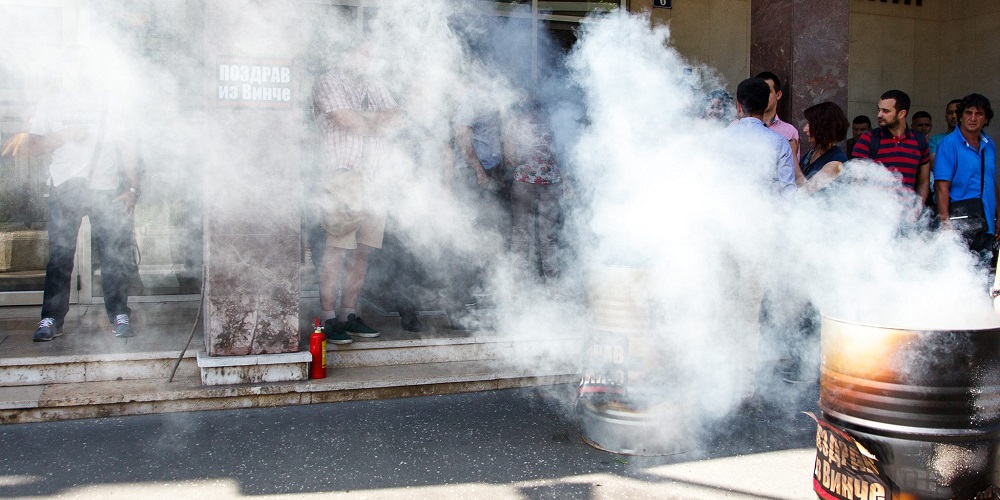Belgrade incinerator PPP, Belgrade, Serbia
In September 2017 the City of Belgrade signed a contract for a 25-year public-private partnership with Itochu and Suez without any public discussion or considering more climate-friendly alternatives. Although it includes a partial rehabilitation of the landfill and construction of a new one, its main feature is a 340,000 tonnes per year “waste-to-energy” incinerator. The only recycling component is a construction waste facility.
Unless the city’s waste generation grows very fast, Belgrade may either be forced to change the law to allow waste imports or to clamp down on informal waste collection in order to fulfill its contractual obligations.
Incinerate or recycle?
Documents obtained by Transparency Serbia seem to indicate that no less than 29 % of Belgrade’s waste is food waste. Paper and cardboard make up another 18 %, plastics 14 % and green garden waste 7 %. Almost none of these need to be disposed of and should be prevented, recycled or composted.
As an EU accession country, Serbia will soon have to catch up with the EU’s 50% recycling target for its municipal waste by 2020 and 65% by 2035. An analysis commissioned by Bankwatch in 2019 showed that Belgrade will not be able to contribute its share of recycling if the incinerator is built.
The World Bank Group’s International Finance Corporation (IFC) assisted with designing the PPP tender, which allowed private investors to undermine public policy by choosing whether or not to include a recycling component in the project. Unsurprisingly, none of the bidders chose to.
The EIB declined to finance the project, stating that it concluded that the project would not be in line with EU circular economy goals. The European Commission also raised similar concerns. Yet despite this, the EBRD, IFC and OeEB all approved financing for the project in 2019.

Key facts
- Location: Vinča landfill, Serbia
- Operational capacity: 340,000 tonnes of waste per year or 66% of Belgrade’s waste
- Total project cost: EUR 326.5 million
- Investor: Beo Clean Energy (Suez-Itochu consortium)
- Financiers: EBRD, IFC, OeEB
- Procurement: Public-Private Partnership
- Concession period: 25 years
Key issues
- The wrong solution for Belgrade’s waste: 68% of Belgrade’s waste is preventable, recyclable or compostable, but this project will burn it instead.
- Not on target: If Serbia’s capital is burning 66% of its waste, the country will not be able to meet EU recycling targets of 65% by 2035. Nor is it likely to separately collect all its biowaste – an obligation under the 2018 Waste Framework Directive.
- High cost for the public: citizens will need to pay a waste management fee, a feed-in tariff for the electricity generated from the facility, as well as compensation to the investor, if the capacity of 340,000 tonnes per year is not fully utilised.
- The project endangers the livelihoods of up to 12,000 people who live from waste-picking in the city.
- Illegal subsidies: In fact, paying a feed-in tariff for electricity generated from non-biodegradable waste is not allowed under the EU Renewable Energy Directive, so the project is now being challenged by a complaint to the Energy Community.
